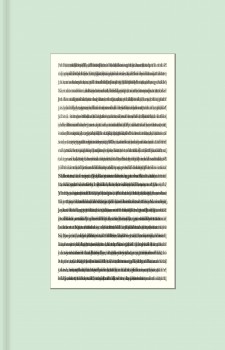Within the mirror
 An extract from Kivirivit (‘Stone lines’, Otava, 2013). Introduction and commentary, Writing silence,
An extract from Kivirivit (‘Stone lines’, Otava, 2013). Introduction and commentary, Writing silence,
by Mervi Kantokorpi
Then, not now. White birches against the white
sky. A vase in the middle of the room.
An attempt to make contact, but with what? The room slowly
fills with whisper and touch. A woman,
turning to catch herself in the mirror,
is afraid the phone will start ringing and startle
her. A gap-closer, not an equaliser.
Beneath the bridges, faces around the fire, these, those.
A ship colliding with the quayside, wind rising,
lost among the rocks, visibility in a sea of buoys,
fog. The story of where I shall end up once
I’ve been travelling long enough. Exotic
animals make a deep impression on the child.
Eyes press half-closed. I know
this might come to nothing, neither good
nor bad. The dull clank of metal on bone,
strikes at various consciousnesses, sometimes in Iceland,
near the coast, whale bones and tanks.
I saw a black-and-white picture of the waves,
and from then on I’ve thought waves are
black-and-white. No war, no peace will
last forever. The memory stick flashes, a hand
removes it from the computer. An organism must
continue long enough that its limits are exposed.
Sometimes, when you imagine you are a machine, sometimes
when you are a machine. A bottle of mineral water, empty-full, wine
on the floor, you walk naked towards the window.
The sense of sleep, the sense of snow. I shall complete this,
become more complete. The conductor stamps
the ticket as the child examines its mother’s silken scarf.
The kimono and the obi are beautiful by themselves,
but do not remotely suit one another. I dream
of shedding flowers. Have you ever felt
like a ruler, so rigid and
exact? A click, a reminder that
the room might be tapped. At first
there was a figure on the canvas. She is looking for something
that she’d like to eat but cannot find anything
that appeals. A human happiness,
a human illusion. Her hands touch
the keyboard, and from the keyboard
this letter is selected, this combination of letters,
this word. Feathers fall to earth
and tickle the stomach of a blind man. Man, every bit as
corporeal a being as any primate,
and every bit as unhappy. The book’s name is the same as
that of the previous book, whose name was the same as the book before
it. Not a species, a variety. I see this
clearly and fall silent. Landscape is mirrored
on the screen, and a fantasy and and an image overlap,
interlock. Sick and suffering,
yet happy still. Gouache, paper, acrylic.
Dusk thickens, softening the contours.
A mirror, just as tired as the image within the mirror,
just as blurred. The journalist hates music
but writes a probing interview with the composer,
asks about his children, but the composer hates children.
Parking spaces outside the barracks, behind
the barracks, beside the barracks. Stamp, rubber,
letter, signature, ISBN number. Trees through
which you can make out the cottage roof, smoke, mist,
the jetty. I’m not concentrating, I’m trying to forget, I forget.
A dumbfounding twist as you make sure
the tank stopper is properly closed. On the carrier bag
a slogan in orange lettering,
too glaring to make it out. White
shores, transparent rocks, boneless dolphins.
I see a square with a woman walking across,
but I do not see the woman. Perhaps it is futile.
Quieting down, concentrating, forming. The sound of ice
when it doesn’t crack. The lecture begins with a lengthy introduction
on the ethics of conception and research. Everything can be imagined
differently, there exists a wholly different order.
Perhaps she is dead, perhaps asleep or
drugged. Don’t read this, write this.
In such a situation violence is not enough,
by no means, there can never be too much
violence. The image of a mother gorilla and her offspring,
closer, sharper. Perhaps it’s
a refrain that you just don’t recognise. That state
after concussion, a dim unconsciousness,
a frigid cellar. Pages are glued to one another.
When nothing happens for a long time,
life feels real. Blood flows in the darkness
within us. A quick one after work,
then home, light, restored. It was a question
of passion, the fact that I loved you so
intensely that I couldn’t sleep next to you.
Why does the child caw, not cry? In the darkening
evening I look in the mirror at a reflection that might not exist at all.
Translated by David Hackston
Tags: poetry
No comments for this entry yet
Trackbacks/Pingbacks:

21 December 2013 on 1:57 am
[…] Otava 2013. übersetzt von David Hackston. ein längeres zitat dieser passage ist auf der homepage Books from Finland veröffentlicht. dort findet sich auch eine englischsprachige kritik des […]